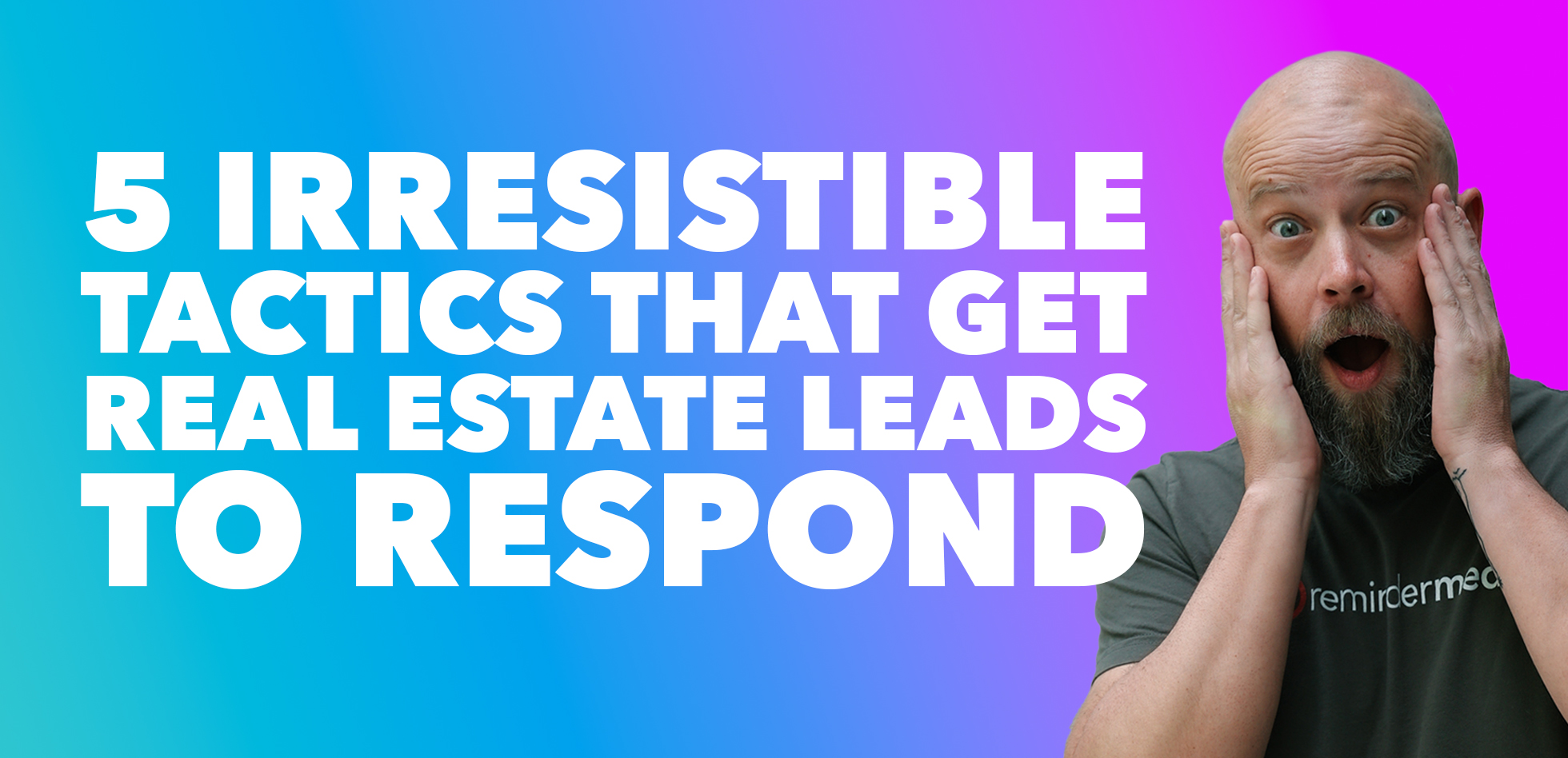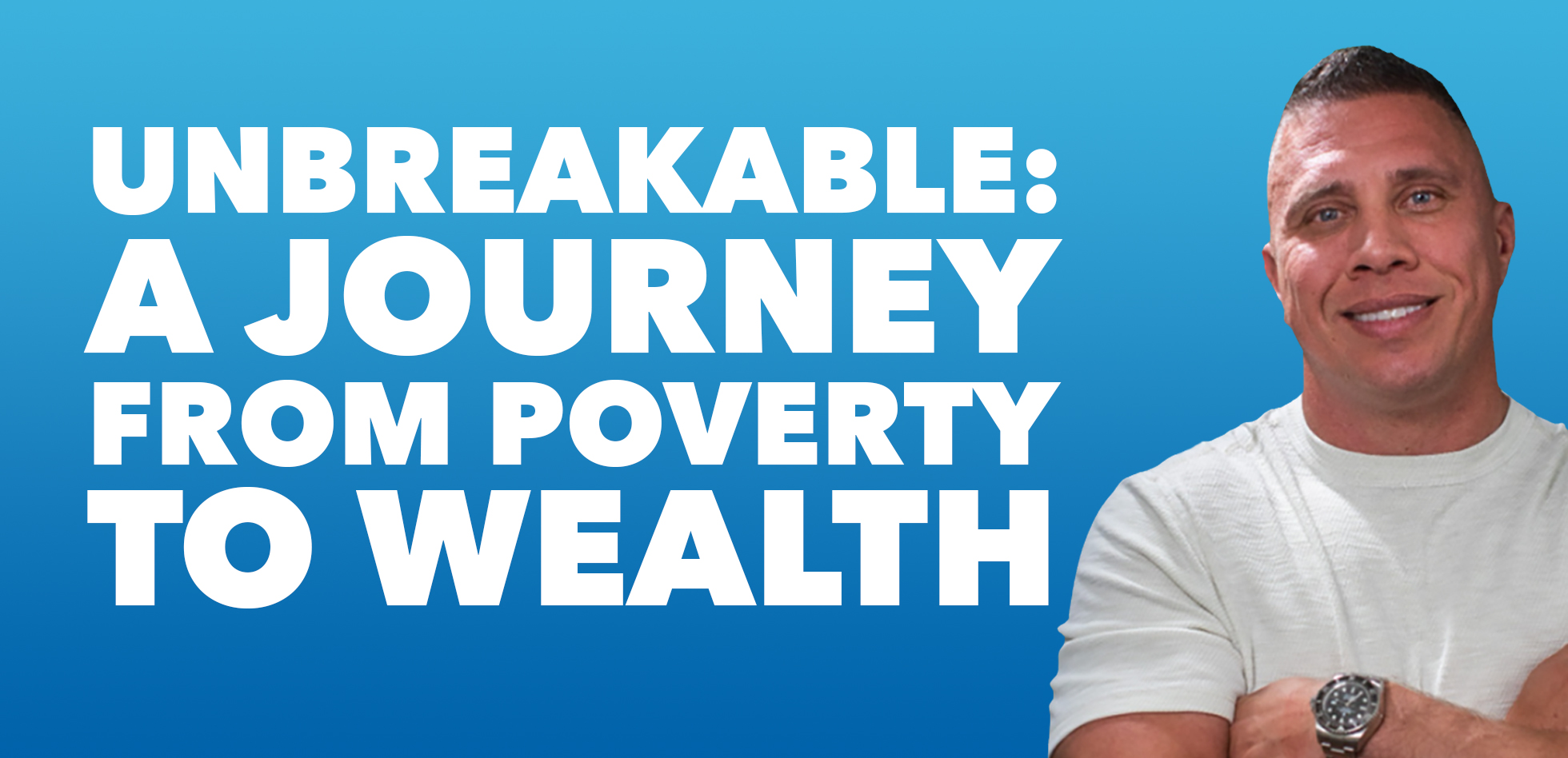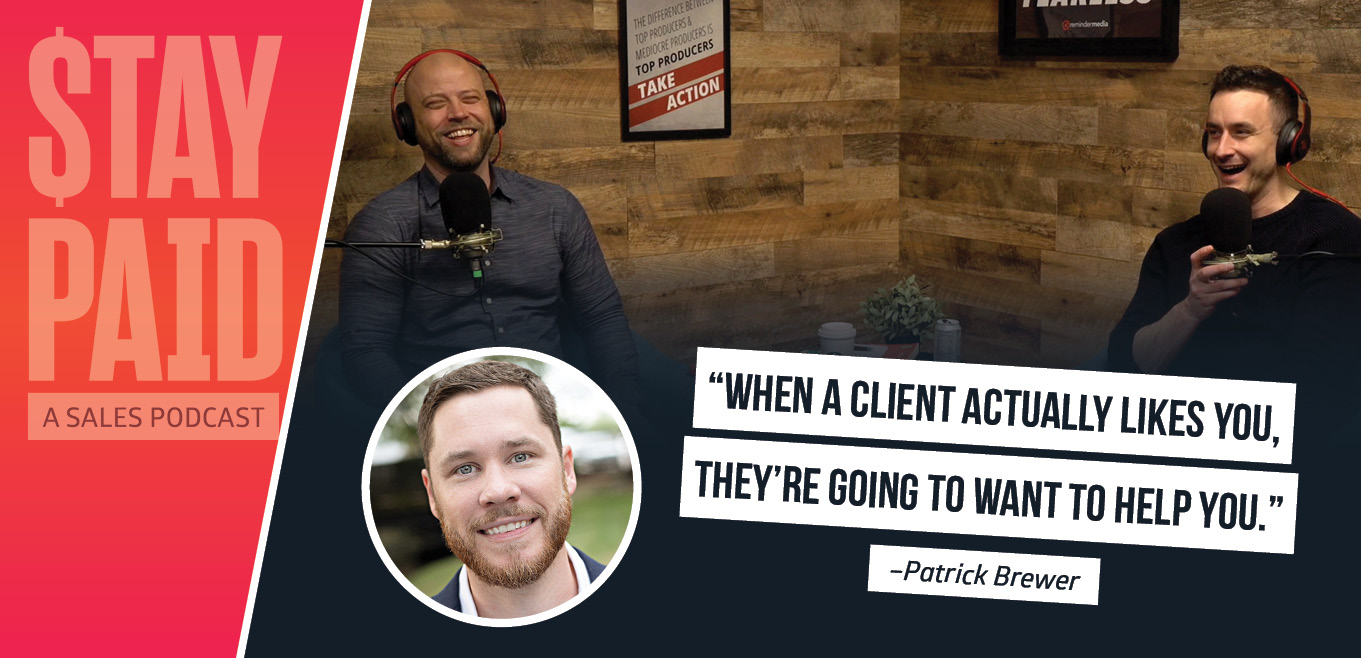Patrick Brewer is the founder of SurePath Wealth, an ensemble financial practice with seven offices across the country. He’s also the host of The Model FA podcast, which covers best practices for financial advisor practice management and marketing.
Today on Stay Paid, Patrick offers strategies for connecting with prospects, and ultimately turning them into raving fans.
Key Points:
- A client experience model is key to turning prospects into clients, and clients into customer advocates.
- You need to know your ideal client before you begin marketing.
- Seminars are still the best way to connect with retirees.
Q: Introduce yourself to our audience.
I’ve got 12 years of experience in the advice industry. I started my career in 2008 during the Great Recession.
I went to the University of Delaware. Once I got out of school, I started working at Vanguard. I was on the phones, taking about 100 phone calls a day with people who were scared about what was going to happen to their retirement funds. I realized that without building a relationship, I wouldn’t be able to help people consistently.
Ultimately, I realized that this situation wasn’t optimal for me. I started searching for opportunities where I could have more impact. I eventually wound up in Austin, where I worked with Dimensional Fund Advisors. I consulted with advisors around the country, which allowed me to have more impact—getting consumers better advice more consistently by talking to their advisors.
I did that for about 4 years. I got my CFA and CPA licenses. At 27, I got the entrepreneurial itch. I purchased a firm with some partners. That was a learning experience, but it didn’t work out incredibly well.
The seller was in his early 70s and wanted to retire. I was motivated to modernize the practice and grow a national wealth management firm. But it just didn’t end up working out. The seller was reluctant to introduce me to clients. There were actually two typewriters in use in the office—it was a real culture shock for me.
I worked there for a year and modernized the practice as much as I could. I ultimately wound up selling my shares.
After that, I took some time off. I was a little jaded about the wealth management industry. I needed to figure out what was next for me.
I started a company called Simple Medicare. I learned the Medicare industry and thought there might be a way to automate the quoting process to the point where consumers wouldn’t have to work with captive agents. I hired some developers and built the product, but I didn’t have access to all the data that I needed. I hit a dead end.
Instead of fighting that fight, I pivoted into something more sustainable. I started doing marketing and lead generation in the senior health care space. This included digital marketing and running webinars. I got to the point where I was earning about $15,000 in recurring income every month. But, despite the money, I couldn’t deal with all the headaches.
So, I started my own firm, which was SurePath Wealth. Our mission is to provide a home for consumers who need help with their finances. We have all the professionals people will need in one office.
But we’re also reaching out to advisors who don’t have the support they need. Our mission is to provide them with equity in their business, as well as the support and infrastructure that will help them create sustainable income.
What I noticed after starting SurePath was that a lot of advisors struggle with marketing and getting people’s attention. That’s why I started a company that would offer marketing programs advisors could still use even if they didn’t want to join our firm.
We launched The Model FA about a year and a half ago. We’ve got a podcast and coaching resources for advisors.
Q: Why do you think advisors struggle with marketing?
It really varies, depending on how they’re registered. Some captive advisors might run into compliance issues, while that’s less of an issue for independent advisors.
Our business is relationship-based, and if you can’t keep up with that, you’re going to struggle. People are looking for a more personal connection, especially with so much content and noise in the marketplace.
I think the bigger issue is that most advisors have been burned by marketing programs that promise really quick results. In reality, it all starts with the acknowledgement that it takes time and energy to build a relationship. You can’t outsource the process. You need to have stories and share your belief system with people.
I read a book that I think would help a lot of people. It’s called The Trusted Advisor. There’s an equation from that book called The Trust Equation, which says:
Trustworthiness = Credibility + Reliability + Intimacy / Self-Orientation
The more you can make a connection, the faster you’re going to build trust. And it’s harder to do that in a captive environment.
Q: How do you teach advisors to build relationships with people in a systematic way?
This is one of the main components of our system, The Model FA Accelerator, which is designed to create exponential growth while moving people through the stages of being a client.
The first three stages are:
- Targets – they don’t know you (cold prospect).
- Acquaintances – they know who you are a little bit.
- Leads – skeptically curious, but not actually clients yet.
You need to move people’s awareness along while also building a sense of urgency and trust. Once you do this, they’ll be willing to do a little work for you.
You’re moving someone from zero awareness to being a client. After becoming a client, there are more stages. This is where you need to execute. These people are really evaluating you to see that you can provide the service that you promised.
Most client relationships die at this point. Advisors aren’t vulnerable enough. They don’t get people to the point where they’re excited to work with them and want to refer them.
The next stage is Loyal Clients. These people ask you questions about things that aren’t even related to financial services. They trust your opinion. These are the people whose feedback you need to ask for.
Ask these people what they would do in your position. Invite them to a client advisory board where they can give you advice on how to grow.
The final stage is Raving Fans. These people really want to see you win. The way to get someone to this point is to ask them for help. As an expert, you very rarely ask anyone for help. But when you ask a client who actually likes you, they’re going to want to help you.
It’s about creating a marketing system that moves people from zero awareness to new client for as little money as possible, and then a system that moves someone from new client to raving fan (a client experience model).
You shouldn’t be trying to build relationships with hundreds of people at once. Focus on 15–20 people a month and try to move those relationships along.
Q: How can advisors build awareness?
I think it starts with figuring out who you’re looking to build awareness with. Too many professionals are unintentional, and that’s who those people are going to meet in return.
For example, too many people do events without intention. Answer four key questions first:
Who are you?
What is your vision?
Why are you doing it?
How are you different?
These questions will help you figure out who your niche market is. Someone focused on entrepreneurs will have an entirely different practice than someone focused on people approaching retirement.
Before you do anything with branding, you need to be able to answer these questions in a compelling manner. Then, you can begin to tactically build awareness around that.
Q: Which techniques are getting results for your advisors?
It really depends on what their focus is. A lot of it starts with a discussion around what they want.
For retirees, the most effective channel is retirement workshops promoted through Facebook and supplemented by direct mail. We help advisors fill rooms to help them bring in income by selling insurance policies.
This approach would have zero effectiveness with an audience of young entrepreneurs. But for retirees, you can advertise by direct email, through email marketing, and via webinars. These people are then retargeted and routed to the appropriate partner in their territory.
I do think the best way to acquire clients is still in person. Once you’ve done that, you can go digital.
With client events, just be creative. You can find classes that are already set up on Airbnb—called “Curated Experiences”—and all you have to do is invite people.
Q: Will the seminar approach continue to work in an age of information?
It won’t. But you need to think about the kind of person who’s going to respond. The person you reach has probably not been thinking about retirement. Now it’s the advisor’s job to make sure it all works out.
I think the younger generation has more intentionality about what success looks like. I think a lot more of the money will be going into digital ads. I also think the consumer will continue to get smarter, and it won’t work as well down the road.
Right now, it works. It’s not on me to say whether it’s right or wrong. It works and helps pay for other, more long-term strategies.
Q: How can advisors build a personal brand on social media?
It’s hard. Building a brand pulls you away from the reason you got into the business in the first place. You spend so much time doing these other things that you don’t have any time left to advise. So, you really have to love it.
Another thing with building an audience online is that most of them won’t be a good fit for your core experience, but they still want your information. You wind up having to sell things like coaching and affiliate marketing in order to keep going.
When that happens, you’re even further away from where you started. But I think it’s really important to have an influencer on your team.
The issue that many advisors will run into is that firms will spend a lot of money to create their own influencers.
The key is to figure out what you’re good at and focus on the activities that will allow you to be successful. Do things like video and podcasting more for business development and less to build an audience.
Q: What’s the best piece of advice you’ve ever received?
Sell a painkiller, not a vitamin. Most ideas I hear that fail actually sound good on paper.
One thing is the idea that you should work with younger people who you have targeted, and then sell them financial planning for a monthly fee. On paper, that makes sense. But most of those people are not intentional about their money, and they can’t really pay for advice. They’re in the middle of their career. Which is why the industry has manufactured a painkiller in the form of an insurance policy that can be sold all at once.
I’m a firm believer in disrupting rather than pioneering. Find a better way to deliver something that’s already working. If an advisor has an issue with marketing, find something innovative that will help them with marketing.
Q: Which routines have driven success for you?
I’d like to tell you I have a two-hour morning routine, but I’m not a morning person. My energy levels fluctuate. A lot of it just comes down to an unwavering belief that I’ll be successful.
There’s something called the Stockdale Paradox. I know it’s going to hurt and the journey will be long, but I’m know I’m going to win. I’m going to be okay.
It’s all about being honest with myself and learning from my failures. The list of what I was good at when I started was very long—now it’s like two things.
Q: What advice would you give to your younger self?
Focus. People can really only know you for one thing.
I like to do a lot of different things. But most people won’t pay attention to what you’re doing every day.
Focus on the things that will move the needle and eliminate distractions. Don’t beat yourself up. Focus on what you’re good at.
Action Items:
- Record a podcast or video where you interview a local professional.
- Find a local event and use it to network with your clients.
Connect with Patrick:
Resources
Bonus Questions:
What instrumental life events played a role in helping you get where you are today?
A series of failures and the lessons learned from each one. I worked in corporate [environments] for about 7 years, and it felt like I was slam dunking on a 7-foot hoop. As soon as I got into the real business world, I realized I was playing a much more competitive game. Lots of ego-death and bad decisions later, here I am.
To date, what professional achievements are you most proud of?
Like any psycho-entrepreneur, I’m not overly proud of my progress to date, but I’d say passing the CFA and CPA exams on the first try and building a 7-figure business with no capital within 12 months are on the list.
What distinct qualities does a good leader possess?
Humility, passion, integrity, intuition, open-mindedness, decisiveness, influence, problem solving, self-assurance.
What advice do you have for someone who is on the verge of quitting?
I feel like a desire to quit comes from disconnecting with your purpose or your “why.” If that gets cloudy, it’s easy for fear to creep in and cause you to question your decisions.



















 Soundcloud
Soundcloud iHeart Radio
iHeart Radio Spotify
Spotify Spotify
Spotify


